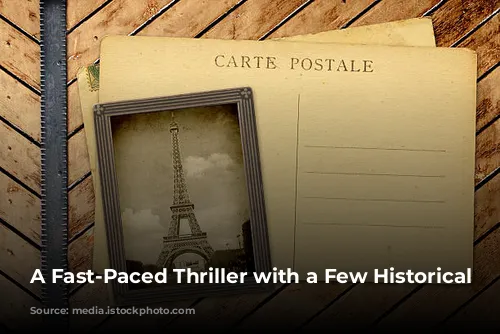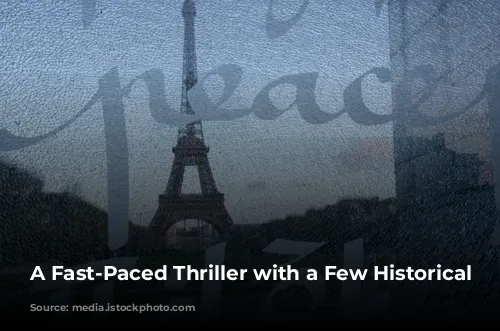Night Flight to Paris, by Cara Black, whisks readers away to the thrilling world of wartime espionage in Paris. The novel’s captivating pace and engaging storytelling make it an easy read for anyone seeking a thrilling escape. However, as an author who writes about Europe during World War II, I couldn’t help but notice a few historical inaccuracies that detract from the overall experience.

A Thrilling Plot with Historical Flaws
Night Flight to Paris features a compelling cast of characters, each with their own secrets and motivations. The main protagonist, a former assassin, embarks on a daring mission: to eliminate a high-ranking German official, retrieve crucial documents, and extract a spy from enemy territory. The author’s talent for crafting a suspenseful narrative shines through, keeping readers on the edge of their seats throughout the book.
But while the plot is compelling, the story’s historical accuracy leaves room for improvement. As a reader who enjoys historical fiction set in Europe, I often find myself scrutinizing the details to ensure they align with the period. In this case, I noticed several errors that are common among American authors writing about European history.

A Lack of European Expertise?
Despite the author’s valiant effort to incorporate different languages, her depiction of French and German culture in the 1940s feels somewhat off-kilter. It’s apparent that she hasn’t spent enough time in Europe to grasp the nuances of these cultures. These errors range from common misconceptions about French customs and fashion to more specific errors in the German language and military ranks.
For instance, Black uses the term “Kaporal” for a German rank, but this term wasn’t used during World War II. She also incorrectly describes a “Kommandatur Reile,” which isn’t a title but rather a reference to a headquarters building. Furthermore, there are numerous inaccuracies in the French language, including incorrect accents, misused words, and an inaccurate portrayal of fashion trends.

Beyond Language: A Deeper Understanding of European Culture
The author’s lack of familiarity with European culture extends beyond language. Her descriptions of daily life in wartime Paris occasionally feel forced and inaccurate. For example, a character uses “musk oil” to moisten her fingers, an unlikely scenario considering the rarity and expensive nature of this ingredient in the perfume industry during that era.
Another example is the incorrect usage of the term “star anise” for a type of anise-flavored liquor. While star anise is one of the ingredients in some anise liqueurs, it’s not a common name for the drink itself.
These errors could have been avoided with thorough research or consultation with a European editor. While Google and Wikipedia can provide information, they can’t replace the expertise of someone who has lived and experienced the culture firsthand.

A Missed Opportunity for Cultural Sensitivity
Finally, the author uses the term “mute” to describe a character who communicates using sign language. This choice is problematic because it implies that deaf people are incapable of speech, when many deaf individuals are capable of spoken language but prefer to use sign language as their primary mode of communication.
This linguistic oversight highlights the importance of using inclusive language that avoids harmful stereotypes.

A Promising Start with Room for Improvement
Night Flight to Paris offers a thrilling escape for readers who enjoy fast-paced, action-packed stories. However, the author’s lack of familiarity with European culture and history diminishes the overall impact of the narrative. By taking the time to consult with experts and conduct more thorough research, Black could have created an even more immersive and believable experience for readers.









